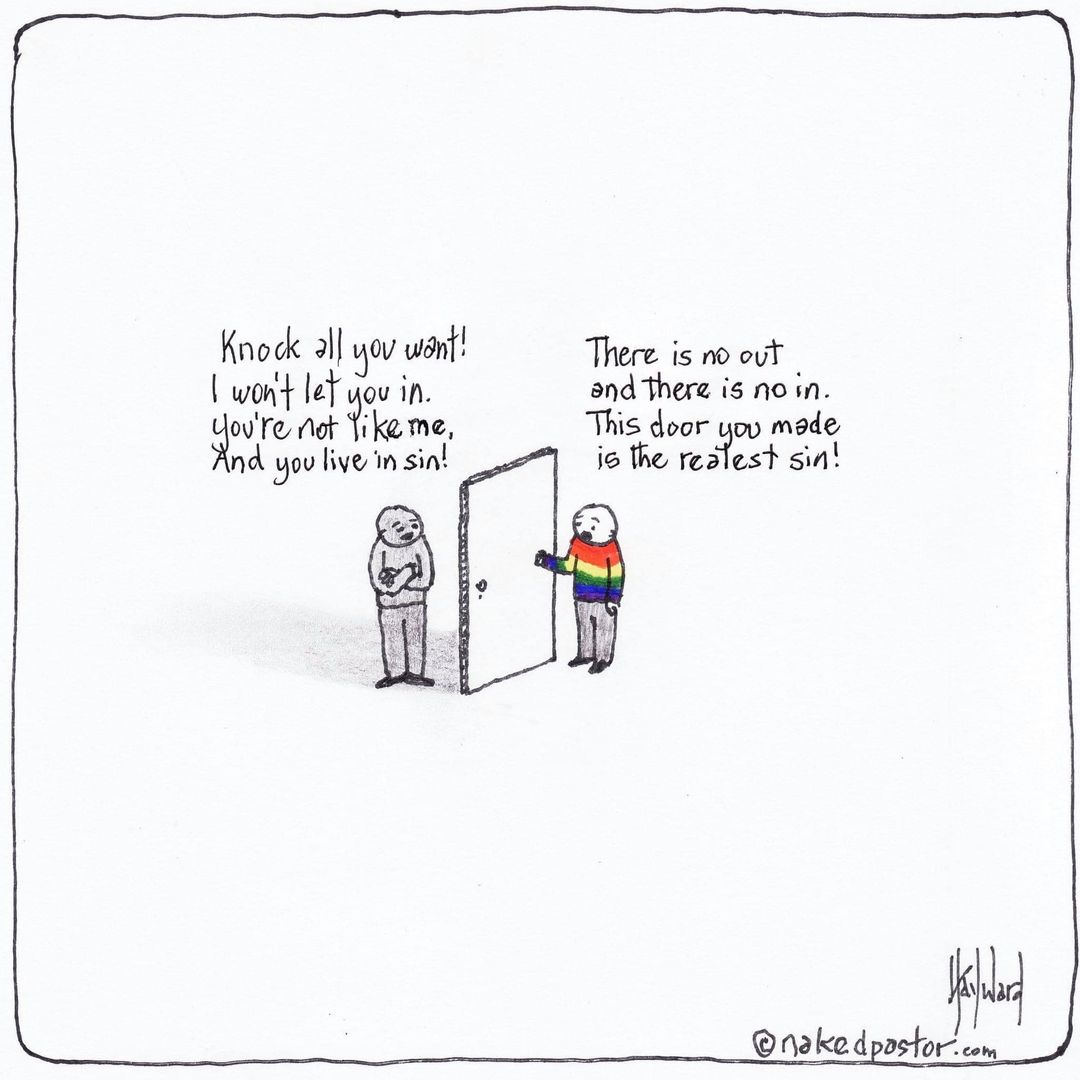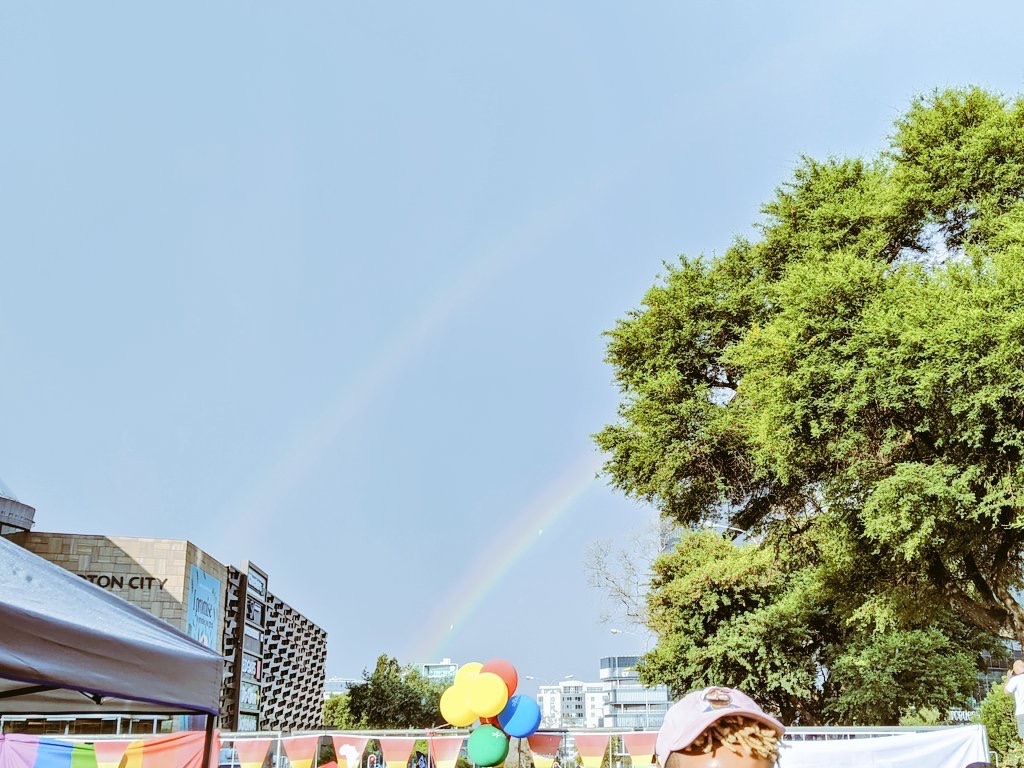The We Are Church community works through the book of Amos, applying it to our world today. Included in the session is some ChatGPT assisted poetry and some worship we created as a community.
The We Are Church community works through the book of Amos, applying it to our world today. Included in the session is some ChatGPT assisted poetry and some worship we created as a community.
This is a sermon I preached at our small faith community, ‘We Are Church’ in Johannesburg, on 9 October 2022.
There are lessons from Jesus’ Baptism, as recorded in Mark 1 for churches. We need to heed these lessons of new beginnings, of not getting stuck in church structures, of not being stuck in Empire thinking, of not getting stuck in creating exclusive and excluding communities.
There are lessons here about God’s love for us all, about God’s image being in all of us, about God’s invitation to be part of new faith communities.
I was as sick as a dog as I was preaching this, so there’s not much energy or outward passion. But this sermon came from the depths of my soul. It is what I believe most deeply.
Watch it here:
I really wish more churches would preach this: there are no walls.
The attached Naked Pastor cartoon is one of the most powerful he’s ever done (and he even managed a touch of poetry too).
Over and over and over again in his ministry, Jesus demonstrated that those people the religious leaders were excluding and judging were actually accepted and welcomed by Jesus. The only people Jesus ever warned about being “outside” were those religious leaders themselves.
Am I saying “everyone will be saved”? No. Some people don’t want to be saved. What I am saying is that it is mainly the people who want to close the doors for others who are choosing to not be saved. They’re choosing instead to build something that is the opposite of the Kingdom of God: they’re choosing to build an exclusive, exclusionary club, and so – by their own approach – they will be allowed to choose a future where live in a space as small as they wanted it to be, as excluded as they were exclusionary, as rejected as they were rejecting and as sad as they made many seekers of love and truth. Their hell has already started.
This is not what God wants. The story of the history of God is a story of ever expanding inclusion and acceptance (or more accurately, of our ever improving understanding of God’s inherent inclusionary character). From one man and his family, to his tribe and a nation, to their neighbours and eventually to the ends of the earth, and all peoples, nations, tribes and tongues. The story starts in an empty garden and ends in a limitless, sustainable city, open to everyone and capable of accommodating us all.
And, yes: it specifically includes all genders as well.

Around 2,000 years ago a young, 33 year old, well-known teacher who had gathered quite a following and reputation was brutally beaten and then crucified on a Roman cross outside of Roman-occupied Jerusalem, while being jeered by crowds of Jewish religious leaders and their accolytes (who left their Passover preparations specifically to come and do that). What’s good about that?
You might not hear this in your church, but the answer is “nothing”. In the Christian faith, we don’t celebrate Friday (we commemorate it). We wait for Sunday.
The only thing “good” about this day is WHY Jesus was killed. The first actual Easter Friday was a complete horror show for everyone who supported Jesus. Their dreams were shattered, their hopes destroyed, their futures dark. They didn’t know that Sunday was coming.
So why was Jesus killed?
Continue reading Easter Friday: Why do Christians call it “Good Friday”?
The Covid-19 disruption has had a huge impact on schools, and they are not going to be able to go “back to normal” anytime in 2020, or possibly even 2021. Parents are struggling to “home school”. Parents might be able to go back to work before children go back to school.
Here is a suggestion for churches, religious organisations, sports clubs and other community societies to help parents and children who are struggling right now.
Please listen and share this idea in your community. We all need to help each other deal with this Covid disruption.
A few years ago, a good friend of mine, author and pastor Brian McLaren wrote a magnificent, thought-provoking piece about the type of Christianity the world needs now. It’s more relevant than ever.
For my friends who are Christian leaders, please read and re-read the last two lines a few times. That’s really the whole thing there. This isn’t something you’re likely to hear in your church – but it should be preached every week.
QUOTE:
The deepest difference in Christianity is not what you think:
Continue reading The deepest difference in Christianity is not what you think
Last Saturday, I joined a group of Christians who attended the Johannesburg Pride Parade. We didn’t protest against it – in fact, we did the opposite. We held signs showing our support of the LGBTQI community, and apologising for the way the church has treated them in the past.
The responses we received were overwhelming and amazing. Many people were in tears as they saw us, and understood that we were bringing a message of love and grace. For those are into signs and wonders, there was a beautiful double rainbow over the whole event.
Here’s a newspaper report of what we did from The Daily Maverick.
Here’s another article I wrote about why I went to Pride: News24 Landisa
And here are some photos of our group.
You probably won’t hear this message in your church, but you should: this is where Jesus would be, and He would be doing if He was here.

more…
Continue reading Christians show pride in gay community
It might be because as the only male in my household I am surrounded by “women’s stuff” all day everyday and am privileged to be forced to see the world through a distinctly feminine (and deliberately feminist) lens, that on Christmas Eve each year, my thoughts often turn to Mary and what she must have been thinking and feeling at this time that very first Christmas so long ago.
She’d have been tired from a long, unnecessary journey, and a nine month pregnancy. She’d have been scared, just a teenager about to give birth for the first time surrounded by strangers. She’d have been concerned for her future, not yet in love with kind Joseph to whom she had been promised in marriage, and overwhelmed by all that had happened to her already in her short life.
On that night, she was an oppressed minority forcibly relocated to some ancestral town she knew nothing of by a dictatorial government who saw her and her kind as a problem. On that night, she was homeless. She would soon become a refugee, and witness to a massacre of children. And she would live to see her first born child killed savagely.
I don’t think Mary had “a silent, holy night” in mind.
And, yet, we know that she knew. This child that was to be born was no ordinary child. Her child would not live an ordinary life. He would change the world, and history, forever. That night, she knew – before anyone else did – that the Saviour was coming.
I have a love-hate relationship with Christmas. I have grown to love it more as I have witnessed it through the excitement of my own children. But I’m not convinced that the message of that first Christmas is being adequately embodied in our world today – especially to those people who are precisely like Mary: pregnant teenagers, scared women, brown-skinned poor people, refugees, those in countries that oppress their citizens or have been invaded by a hostile force, the homeless and those who wonder where their next meal will come from. What does it mean to them that the Saviour has come?
Mary’s story is as important as Jesus’ at Christmas. Christmas Eve is my moment to see the greatest story ever told through the eyes of Mary, the Mother of God.
The term “Evangelical” has been hijacked by white Americans. It’s a dangerous stereotype, but they’re mainly Trump supporters and would sacrifice almost anything to ensure they ban abortion in America. They’re nationalistic, racist and homophobic.
This isn’t the textbook theological definition, of course. Evangelicals are supposed to be defined as people who take the Bible seriously (the more Reformed amongst them would insist we take it literally and that it is inerrant), who are evangelist in their worldview (they are intent on spreading the Gospel), and believe that personal salvation is available through Jesus’ redeeming death on the Cross.
I grew up as an Evangelical. And, in as much as I believe that Jesus is the promised Messiah and that the Bible is a true witness to Him, I would like to continue to think of myself as an Evangelical. But I can no longer remain silent about the dangers of Evangelicalism. In fact, I agree with an article written by Chris Kratzer this past week, in response to evangelical Christians continuing to support Donald Trump after he failed to condemn neo-Nazis in Charlottesville – he called Evangelicalism evil. Well, at least seven of the things White Evangelical Americans believe.
You can read his full article, with details on each, at his blog. I highly recommend you do. Here’s the summary of the seven evils:
Continue reading Seven evils of (White) Evangelical Christianity